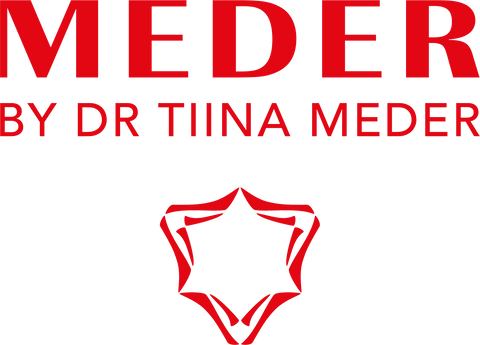We know now that we can affect the way the skin will look tomorrow and in a more distant future, not just today. Epigenetic science gives us a key to many processes in the body and by unlocking them, epigenetic solutions can open up a world of possibilities. Here at Meder Beauty we already have solutions that utilise this cutting-edge science.
Read more on this fascinating topic and discover where you can find them in your skincare products.
What is Epigenetic Science?
Epigenetic science explores all the ways the external world affects the body’s phenotype without actually changing its genotype.
Phenotype: an individual’s observable traits.
Genotype: complete set of genetic material.
A good example of epigenetic influence is the acceleration in human development: in the last few decades people all over the world have become noticeably taller and larger.
Families that had been relatively short generation after generation, started giving birth to larger babies who grow up to be tall adults. The DNA of these babies’ short ancestors remains unchanged, but their bones still grow longer and muscles stronger. Why? Because these children have access to more nutritious food, vitamins and minerals, they are not plagued by dangerous infectious diseases and experience a lot less stress in their early days.
The genes responsible for increased height had been dormant for generations, but once beneficial influences became strong enough, these genes awakened and altered the activity of many systems in the body, from endocrine and blood to bone and muscle systems.
Why Is Epigenetic Science Useful in Skincare?
In the last decade geneticists and molecular biologists have been increasingly immersed in the study of epigenetic influences that can define all kinds of traits, including the ageing and general appearance of human skin.
Dermatology and aesthetic medicine both have use for epigenetic research. It’s no secret that with age the skin becomes thinner, more dry, loses its youthful radiance and glow, and wrinkles almost inevitably follow. This is why getting rid of wrinkles does not necessarily make the face appear younger. Ageing manifests in the changes of the skin’s health and appearance as much as in lines and creases.
As it turns out, epigenetic influences can be quite diverse. For example, the expression of genes, responsible for the general health of the body as a whole and the skin in particular, is accelerated by psychological comfort, social fulfilment, timely diagnostics and treatment of illness, financial security, clean environment and even intellectual activity, just as much as by healthy diet and exercise.











